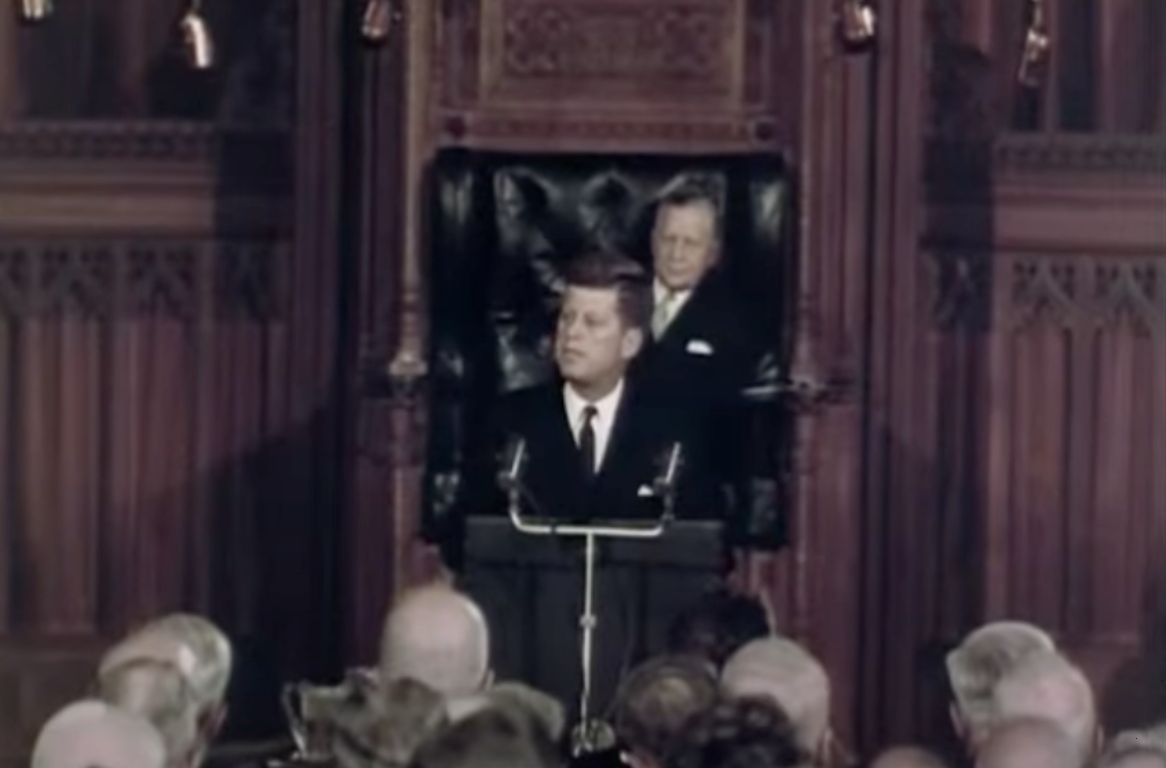JFK's First International Trip: A Historic Visit to Canada
In 1961, President John F. Kennedy chose Canada for his first international visit after inauguration, highlighting the special relationship between our nations.

Geography Has Made Us Neighbours, History Has Made Us Friends
During his address to the Canadian Parliament on May 17, 1961, Kennedy delivered what would become one of the most memorable statements about Canadian-American relations, saying:
Geography has made us neighbours. History has made us friends. Economics has made us partners. And necessity has made us allies. Those whom nature hath so joined together, let no man put asunder.
This eloquent description of the Canada-U.S. relationship reflected the deep bonds of friendship, cooperation, and mutual respect that have traditionally characterized relations between our countries. Kennedy's words resonated deeply with Canadians and Americans alike, and they continue to be cited as the ideal framework for our bilateral relationship.
Kennedy's choice to visit Canada first wasn't just symbolic—it reflected real strategic priorities and the genuine friendship between our nations. The visit included substantive discussions about defence cooperation, trade issues, and shared global concerns during the height of the Cold War.
Kennedy acknowledged the significance of this visit in his address, stating:
This is my first trip--the first trip of my wife and myself outside of our country's borders. It is just and fitting, and appropriate and traditional, that I should come here to Canada.
The historical reverence for Canadian sovereignty and partnership stands in stark contrast to more recent rhetoric. On April 15, 2025, after three weeks of silence from the White House on the topic of Canada becoming a US state, White House Press Secretary Karoline Leavitt responded to a CBC journalist's question by stating:
I would reject the president's position on Canada has shifted. The president still maintains his position on Canada: the United States has been subsidizing Canada's national defence, and he believes that Canadians would benefit greatly from becoming the 51st state of the United States of America.
This unprecedented suggestion—that Canada should become a US state—represents a dramatic departure from centuries of diplomatic respect for Canadian sovereignty. For over 200 years, American presidents from both parties have recognized and valued Canada's independence while building one of the world's closest international partnerships.
Kennedy's description of neighbouring nations bound by friendship, economics, and shared values—while respecting each other's independence—continues to represent the ideal that many Canadians and Americans hope for in our relationship. It is a reflection of mutual respect and cooperation between sovereign allies, not in the subordination of one country to another.
The contrast between Kennedy's eloquent celebration of partnership between sovereign nations and today's unprecedented rhetoric reminds us how dramatic the shift in US policy has been—and how essential it is to defend sovereignty, mutual respect, and the values that have underpinned the Canadian-American relationship for generations.